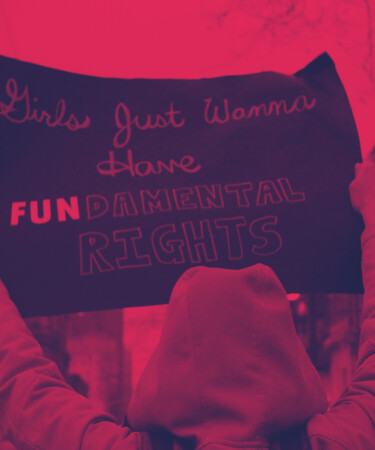
Equal pay lawsuit: Equal pay is not a matter of negotiation
Individual salary negotiations are no justification for paying a man more for the same work. We successfully fought for that before the Federal Labor Court.
In Germany, women earn on average around 6 percent less than their male colleagues for the same experience, qualifications and job. There are usually no objective criteria for this. This is also the case for Susanne Dumas. The plaintiff worked at the metal company Photon Meissener Technologies GmbH from March 2017 to July 2019. Alongside her, two male employees were employed in external sales at the same time, who received considerably more basic salary than the plaintiff. The only other female colleague in external sales also earned less than the two men, despite her already having been working there for forty years. Shortly before an in-house collective agreement came into force, the company agreed a further salary increase with the two male employees. The plaintiff was left empty-handed. The activities of the employees in the external sales department did not differ. They regularly represented each other for longer periods of time.
The company could not prove any objective and comprehensible reasons for these salary differences. The company management justified the higher starting salary of the colleague hired shortly before the plaintiff with the fact that this was necessary to attract him as an employee. The later salary increase had also been agreed upon at the time of hiring. For the difference in salary compared to the second male colleague, the company referred to the longer length of service. The company was not able to provide a stringent system with experience levels or an explanation as to why the longest-serving, far more experienced female colleague also earned less.
REASONS FOR A SALARY DIFFERENCE MUST BE OBJECTIVE
The prohibition of pay discrimination is enshrined in Article 157 TFEU and is also directly applicable to private employers. The General Equal Treatment Act (AGG), the Remuneration Transparency Act (EntgTranspG) and Article 3 (2) and (3) of the German Basic Law also guarantee this prohibition of discrimination. According to the established case law of the ECJ and more recent case law of the BAG, a direct disadvantage in terms of pay is presumed if an employee receives lower pay than an employee of the opposite gender for the same or equivalent work. The employer must justify these differences on the basis of objective factors, such as qualifications, performance or seniority. Nevertheless, the plaintiff lost before the Dresden Labor Court and the Saxony Regional Labor Court. Both courts accepted the male colleague's salary claim as an objective factor that can justify a difference in pay. In doing so, however, the courts fail to recognize that the requirement of equal pay restricts contractual freedom in the area of salary negotiations. If men were able to negotiate individually that they would be paid more for the same work, the equal pay requirement would in practice be nullified.
By way of appeal to the Federal Labor Court, we asked one of the highest courts to clarify that individual agreements or salary demands are not an objective criterion for justifying a difference in salary for the same work or work of equal value.
FREE NEGOTIABILITY OF SALARIES DISADVANTAGES WOMEN
The very purpose of the equal pay requirement is to ensure that the pay gaps between women and men are closed. In order to ensure that no gender-specific evaluations are incorporated into pay, the requirements for justifying salary differences are very strict. Against this background, negotiating skills cannot be considered an objective criterion.
Negotiation success is based less on objective criteria than on the subjective perception of the negotiating partner. Numerous studies show that women achieve significantly worse results in negotiations than men. The reasons for this are complex and are rooted in the socially typical behavior of men and women. The social role of women is commonly associated with the attributes of empathy, caring and commitment to third parties. As a result, women typically find it more difficult to advocate for their own interests in negotiation situations. If women deviate from this social role, their negotiating conditions also become more difficult. In addition, women still do most of the care work. In negotiations with employers, they - including the plaintiff - are therefore often forced to focus on part-time arrangements and flexible working hours in order to be able to reconcile work and family. Payment then remains secondary.
LANDMARK RULING MEANS MAJOR VICTORY FOR EQUAL PAY
In February 2023, the Federal Labour Court ruled after our lawsuit, that employers may not deviate from the principle of "equal pay for equal work" just because a man makes higher salary demands than his female colleague. In practice, this means that employers can meet the wage demands of an employee or job applicant. However, they must then also increase the salary of an equally qualified and experienced female employee. The court found in favour of our plaintiff and awarded her almost 15,000 € in lost wages and compensation of 2000 €.



